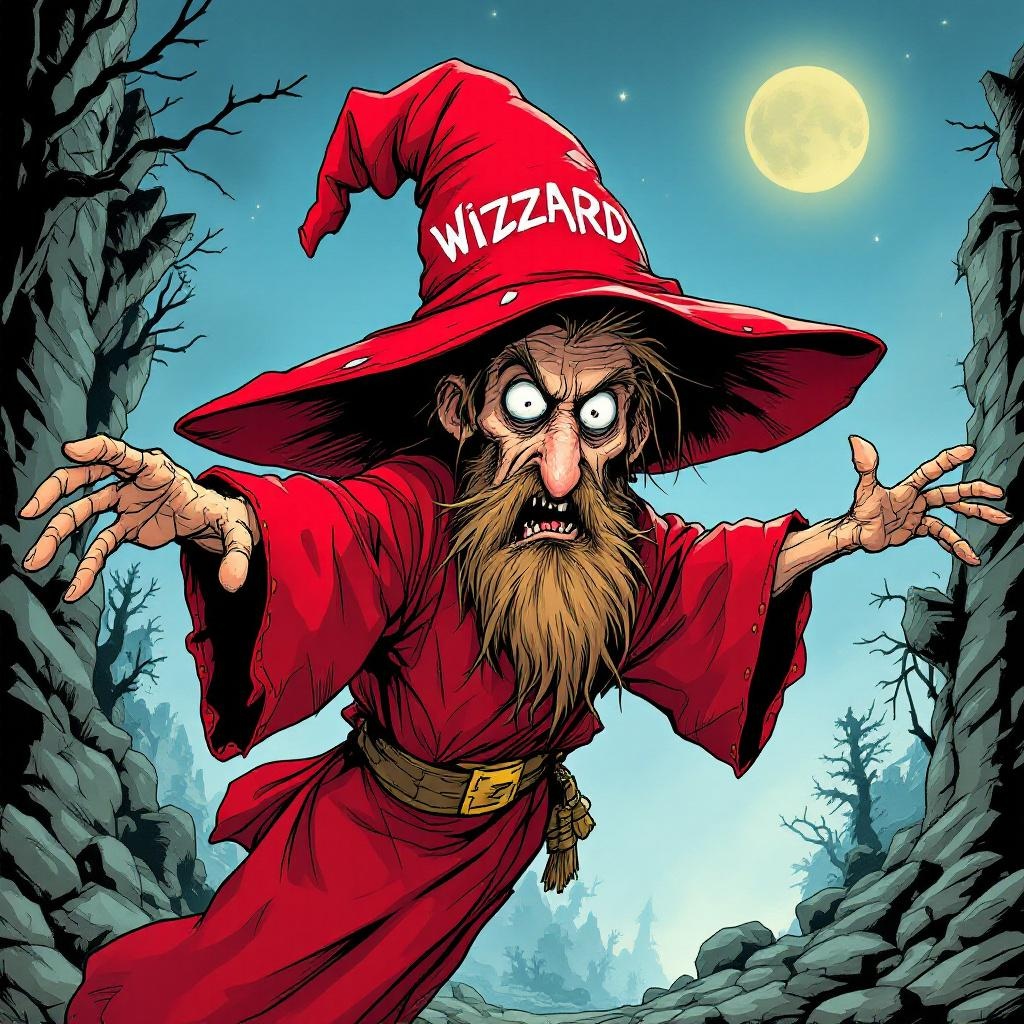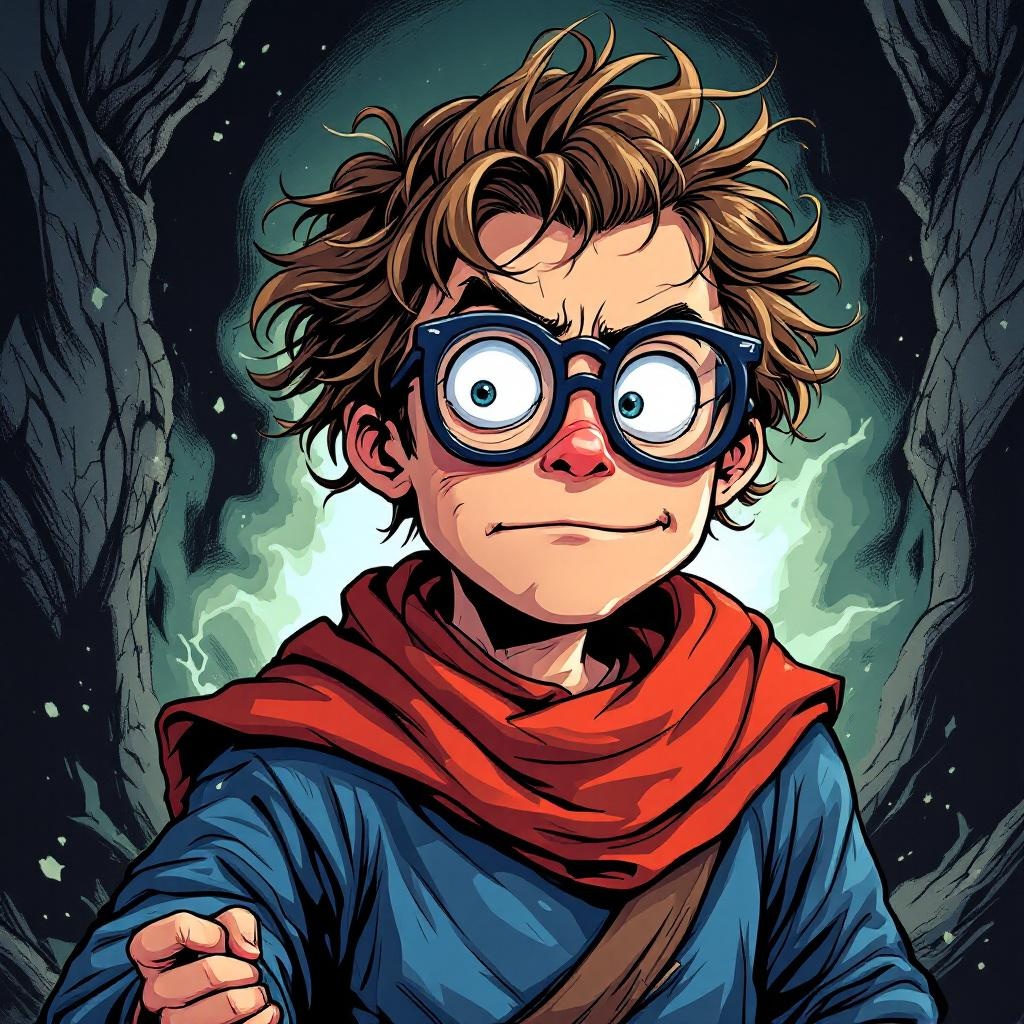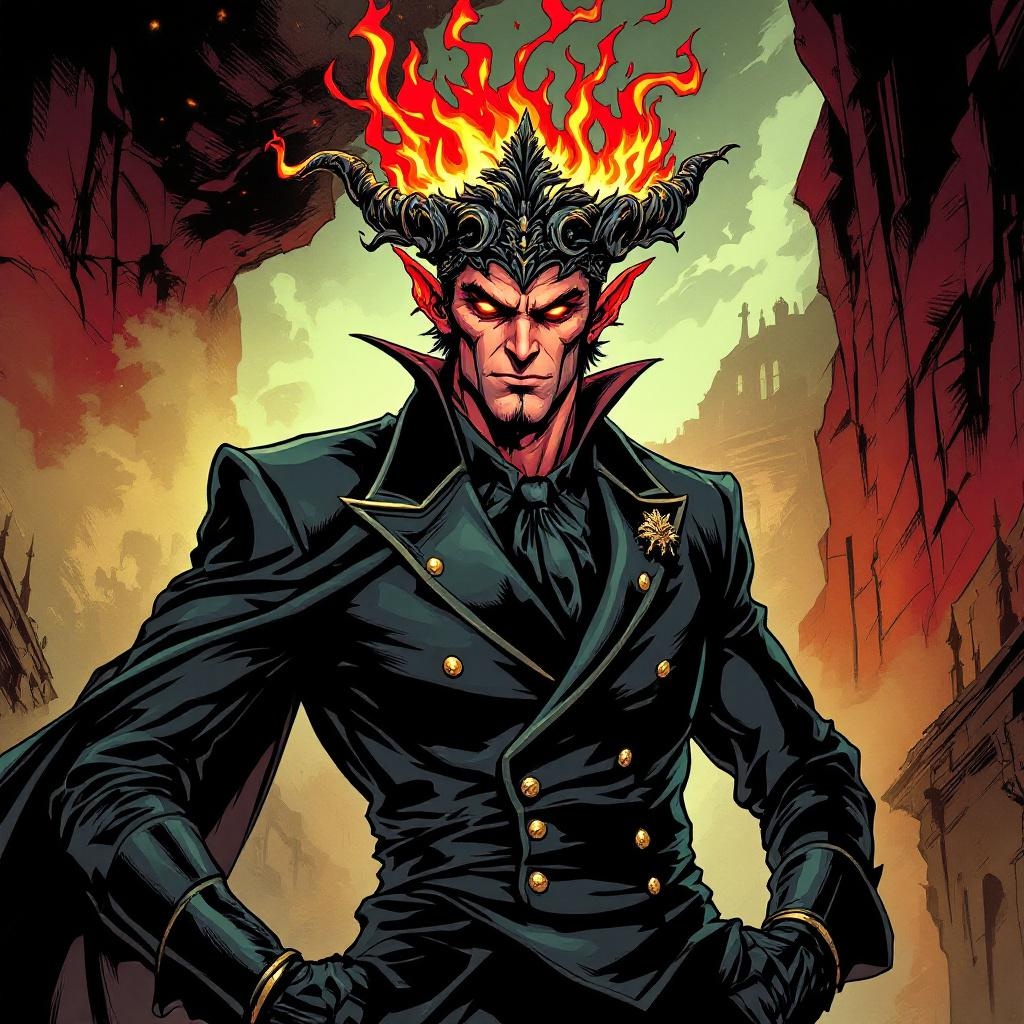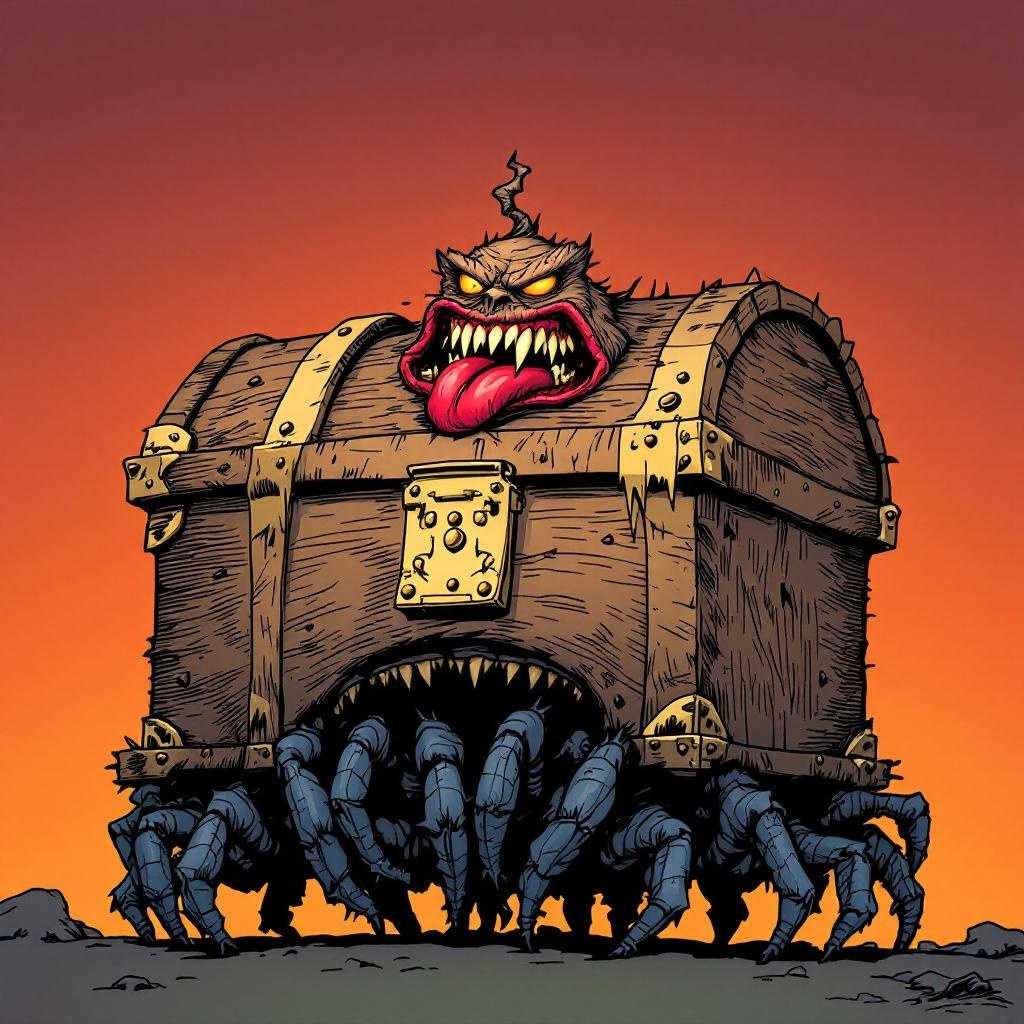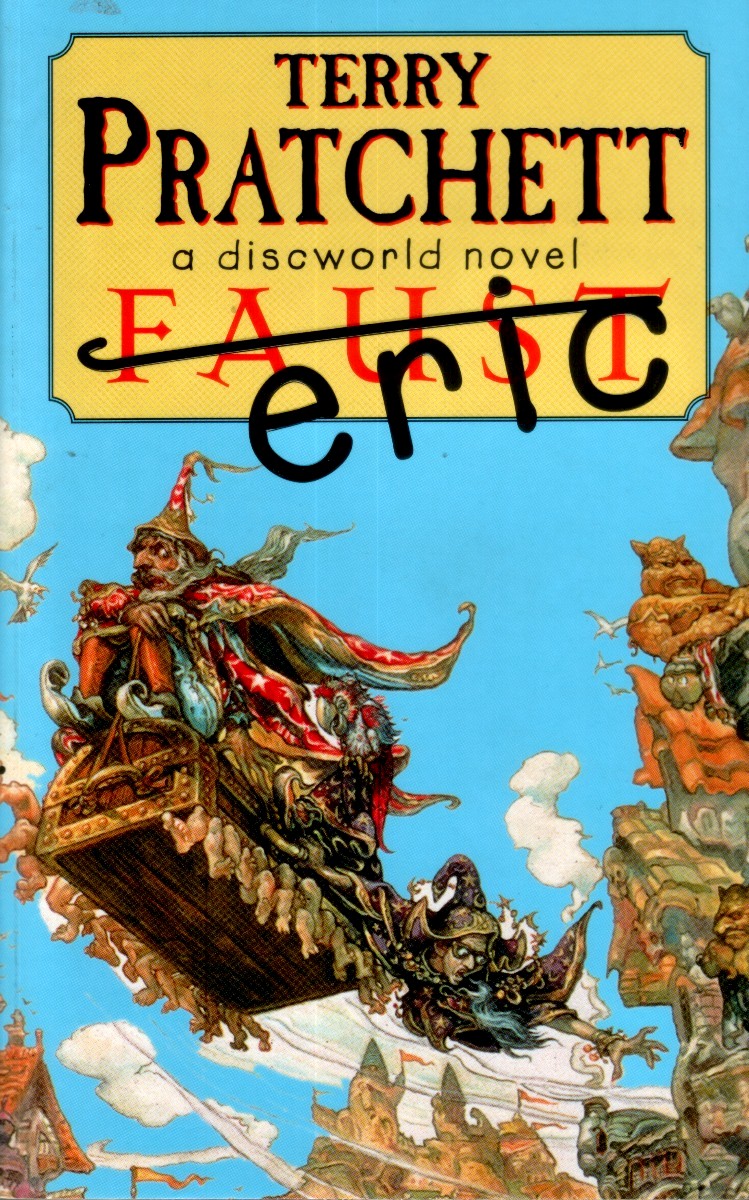
Faust Eric - Discworld Book 9
Synopsis
Rincewind accidentally becomes bound to Eric, a teenage demonologist. Eric wishes for ultimate power, eternal life, and the love of a legendary beauty requests that cause predictably comedic disaster.
Book Overview
In Faust Eric, the wizard Rincewind finds himself inadvertently bound to Eric Thursley, a teenage demonologist who mistakenly summons Rincewind while attempting to conjure a powerful demon. Eric demands three grand wishes: mastery over the kingdoms of the world, immortality, and the love of the most beautiful woman in history. Reluctantly compelled to play along, Rincewind soon realizes that granting these wishes—even accidentally—is both far more dangerous and complicated than either of them expects.
Their misadventures quickly escalate into surreal travels through time and space, parodying classical literature, mythology, and theology. Visits to a primitive jungle kingdom, the Discworld equivalent of the Trojan War, and even a vision of Hell itself humorously explore the unintended consequences of unchecked ambition and desire. Throughout their journey, Rincewind’s signature cowardice and dry wit highlight the absurdity of human aspirations when divorced from wisdom or self-awareness.
Thematically, Faust Eric is a humorous yet pointed satire of wish fulfillment, ambition, and humanity’s insatiable desires. By granting Eric’s superficial dreams in unintended ways, Pratchett examines the futility of short-sighted aspirations and the inherent emptiness of power, immortality, and superficial beauty without meaningful purpose or understanding. The novel cleverly critiques human folly in relentlessly pursuing misguided goals, warning against the dangers inherent in unreflective ambition and greed.
Though shorter and lighter in tone compared to other Discworld novels, Faust Eric maintains continuity by revisiting familiar themes and reinforcing Rincewind’s established character traits—especially his humorous aversion to heroism and responsibility. While largely self-contained, the novel enriches the Discworld universe by offering an irreverent and insightful take on classical literary themes, religion, and myth, maintaining the series’ trademark blend of humor, philosophy, and satire.
Principal Characters
Rincewind
An inept and cowardly wizard who consistently finds himself at the center of world-changing events despite his best efforts to run away from danger. He has an incredible talent for languages and surviving against all odds.
Appears in 8 booksView DetailsEric Thursley
Eric Thursley, often referred to simply as Eric, is a precocious and somewhat arrogant teenage demonologist who inadvertently summons the wizard Rincewind instead of a demon. His role in the Discworld universe is to serve as a humorous parody of the classic Faustian tale, highlighting the folly of youthful ambition and the unexpected consequences of wish fulfillment. Eric's significance lies in his interactions with Rincewind, which lead to a series of misadventures that explore themes of power, desire, and the nature of reality.
Appears in 1 bookView DetailsThe Demon King Astfgl
The Demon King Astfgl is the ambitious and bureaucratic ruler of Hell in Terry Pratchett's Discworld series, particularly in "Faust Eric." Known for his desire to modernize and streamline the infernal realms, Astfgl is a character who embodies the absurdity of corporate management applied to the underworld. His significance lies in his satirical representation of modern leadership and the inefficacy of overcomplicated systems.
Appears in 1 bookView DetailsThe Luggage
A sentient trunk made of sapient pearwood that follows its owner anywhere, even across dimensions. Fiercely loyal and protective, it has hundreds of little legs, can move fast, and contains more space inside than physically possible. Known to eat those who threaten its master.
Appears in 4 booksView DetailsDeath
The anthropomorphic personification of death on Discworld, who speaks in ALL CAPITALS and has a fondness for cats, curry, and humanity. Despite his intimidating appearance as a skeleton in a black robe, he's generally fair, philosophical, and tries to understand humans.
Appears in 7 booksView Details
